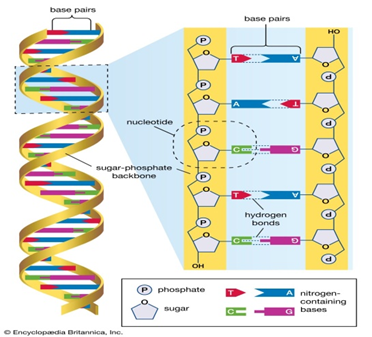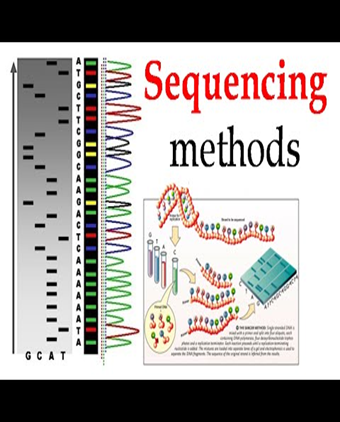
Genome Sequencing
Genome sequencing is a revolutionary scientific process that involves determining the complete DNA sequence of an organism's genome. It provides invaluable insights into individuals, species, and entire ecosystems' genetic makeup.
What is genome sequencing?
Genome sequencing refers to decoding an organism's entire genetic information or genome. The genome comprises all the genes and non-coding DNA which collectively determine an organism's traits and functions. Sequencing involves identifying the order of nucleotide bases (adenine, thymine, cytosine, and guanine) that form the DNA molecule.
Significance of Genome Sequencing:
- Unraveling Genetic Variation: Genome sequencing enables the identification of genetic variations, such as single nucleotide polymorphisms (SNPs), insertions, and deletions, among individuals. This information is pivotal in understanding the genetic basis of diseases, genetic predispositions, and population diversity.
- Personalized Medicine: By analyzing an individual's genome, healthcare professionals can predict disease susceptibility, tailor treatments, and develop personalized medicine. It facilitates accurate diagnoses, risk assessment, and targeted therapies, improving patient outcomes.
- Evolutionary Studies: Genome sequencing enhances our understanding of evolutionary relationships between species and their common ancestors. Comparative genomics helps identify genetic adaptations, evolutionary pressures, and evolutionary histories of organisms.
- Agricultural Advancements: Sequencing plant and animal genomes aids in developing crops with desired traits, improving livestock breeding programs, and enhancing agricultural productivity. It enables the identification of genes responsible for disease resistance, yield optimization, and nutrient content.
Techniques for Genome Sequencing:
- Sanger Sequencing: The traditional Sanger sequencing method involves fragmenting DNA, amplifying specific regions, and determining the sequence by incorporating fluorescently labelled nucleotides. It is accurate but time-consuming and expensive, limiting its applications to smaller genomes.
- Next-Generation Sequencing (NGS): NGS technologies, including Illumina, Ion Torrent, and Pacific Biosciences, revolutionized genome sequencing by enabling high-throughput sequencing. These methods simultaneously sequence millions of fragments, significantly reducing cost and time while generating massive data.
- Third-Generation Sequencing: Third-generation sequencing technologies, such as Oxford Nanopore and PacBio Sequencing, offer long-read sequencing capabilities, overcoming the limitations of short-read NGS. These methods provide more comprehensive genome assemblies and aid in resolving complex genomic regions.

Applications of Genome Sequencing:
- Clinical Genomics: Genome sequencing plays a crucial role in diagnosing rare genetic disorders, identifying disease-causing mutations, and enabling personalized medicine. It assists in predicting drug responses, understanding cancer genetics, and facilitating genetic counselling.
- Infectious Disease Surveillance: Sequencing pathogen genomes enhances disease surveillance, outbreak investigations, and tracking of antibiotic resistance. It helps in identifying virulence factors, understanding transmission patterns, and developing targeted interventions.
- Conservation and Biodiversity: Genome sequencing contributes to conservation efforts by assessing genetic diversity, identifying endangered species, and establishing breeding programs for conservation. It aids in understanding the impact of habitat loss, climate change, and human activities on ecosystems.
- Forensic Genomics: By analyzing DNA evidence, genome sequencing aids in forensic investigations, identification of human remains, and resolving paternity disputes. It has significantly improved accuracy in criminal investigations.
Ethical Considerations:
- Privacy and Data Security: Genome sequencing generates sensitive genetic information that must be protected to prevent misuse or discrimination. Robust data security measures, informed consent, and strict regulations are essential to maintain privacy and ensure data integrity.
- Informed Consent and Counselling: Genetic testing and sequencing should involve informed consent, comprehensive pre- and post-test counseling, and clear communication of potential implications and limitations. Ethical guidelines should safeguard against potential psychological and societal consequences.
- Equity and Access: Ensuring equitable access to genome sequencing technologies and their benefits is crucial. Addressing the digital divide, reducing cost barriers, and promoting inclusivity are imperative to preventing genetic disparities based on socioeconomic factors.
Conclusion:
Genome sequencing has revolutionized our understanding of genetics, disease, evolution, and biodiversity. Its applications span diverse fields, including healthcare, agriculture, forensics, and conservation. However, the ethical implications of genome sequencing warrant careful consideration to protect privacy, ensure informed consent, and promote equity. Aspirants preparing for the UPSC examination should grasp the significance and potential of genome sequencing in various domains to stay abreast of the latest developments in science and technology.
